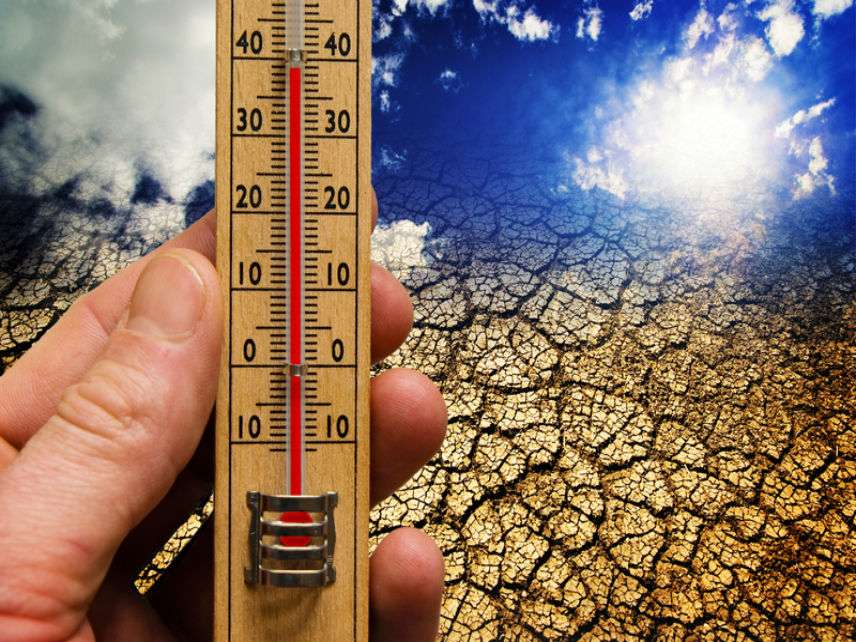Climate Change Will Reduce Incomes in 2100 from $97,000 to $95,000
Global per capita income now is $10,000. How much should we spend to prevent climate change losses in 2100?

The Yale economist William Nordhaus has spent decades using a combination of econometric and climate models to estimate global warming's future effects. He isn't the only researcher who's been attempting to make such projections, and Nordhaus' latest study considers a range of different estimates. (Get your salt shaker ready.)
In a new National Bureau of Economic Research working paper, Nordhaus and his colleague Andrew Moffatt survey 36 different estimates (derived from 27 studies) of climate change's impact on gross world product by the year 2100. Nordhaus and Moffatt note that "there are many studies of theoretical temperature increases in the 2 to 4°C range, and that they cluster in the range of a loss of 0 to 4% of global output." After crunching the numbers, they report:
The estimated impact from the preferred regression is 1.63% of income at 3°C warming and 6.53% of income at a 6°C warming. We make a judgmental adjustment of 25% to cover unquantified sectors….With this adjustment, the estimated impact is -2.04 (+ 2.21)% of income at 3°C warming and -8.16 (+ 2.43)% of income at a 6°C warming.
The authors note that the Intergovernmental Panel on Climate Change's Fifth Assessment Report declined to make an estimate of future losses, but in the Fourth Report, the panel stated that "Global mean losses could be 1 to 5% of GDP for 4°C of warming." This means that Nordhaus and Moffatt's findings are broadly in line with the climate change consensus.
So what do these findings portend for people lucky enough to be alive in 2100? Let's consider the best-case scenario first. Annual gross world product is currently somewhere around $75 trillion, which without adjustments means that global income stands at around $10,000 per capita. Assume 3 percent economic growth from now until 2100, and a global population that year of 9 billion. Without climate change, world GDP would rise to $872 trillion and income would be $97,000 per capita. Assuming a 3°C increase in average temperature, that would reduce global GDP from $872 trillion to $854 trillion, and income to $95,000 per capita. At 6°C, the figures would be $800 trillion and $89,000 per capita.
In the unlikely event that global economic growth dawdles along at only 2 percent per year for the rest of this century, gross world product would rise to only $388 trillion and income to $43,000 per capita without warming. A 3°C rise in average temperature would reduce global GDP to $380 trillion and income to $42,000 per person; a 6°C increase would cut global GDP to $360 trillion and income to $40,000 per person.
The Nordhaus and Moffatt survey of studies also found "no indication from the damage estimates of a sharp discontinuity or high convexity." In other words, the studies do not identify threshold effects in which damages from climate change accelerate in the future.
These calculations bring up this question: How much should people living today making an average of $10,000 apiece spend in order to prevent the future incomes from falling from $97,000 to $95,000 per capita?
Now is the time to get out your salt shaker and liberally apply the sodium chloride to these calculations.
